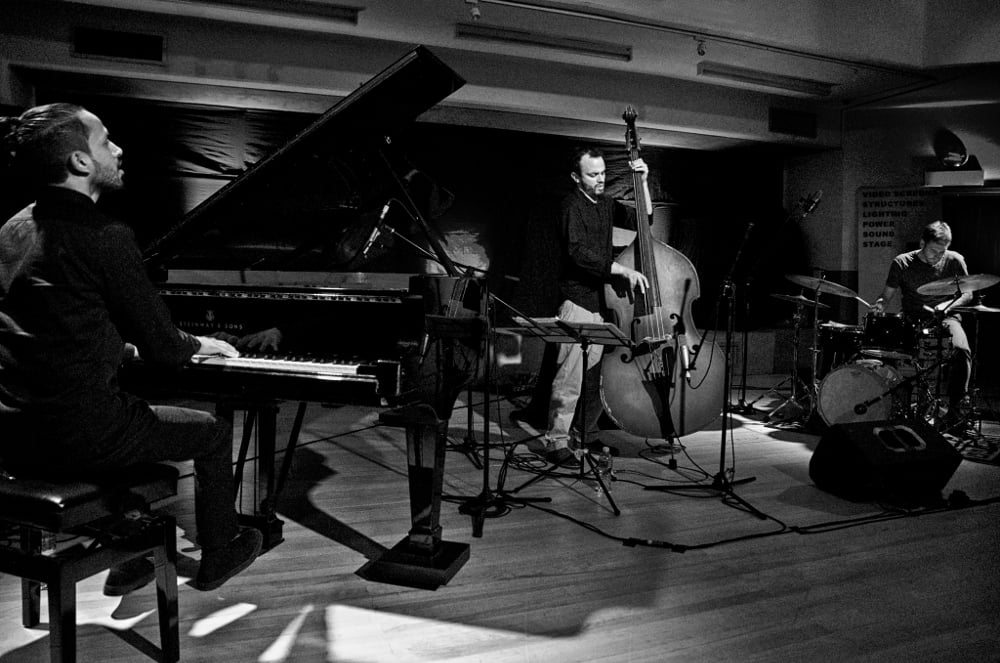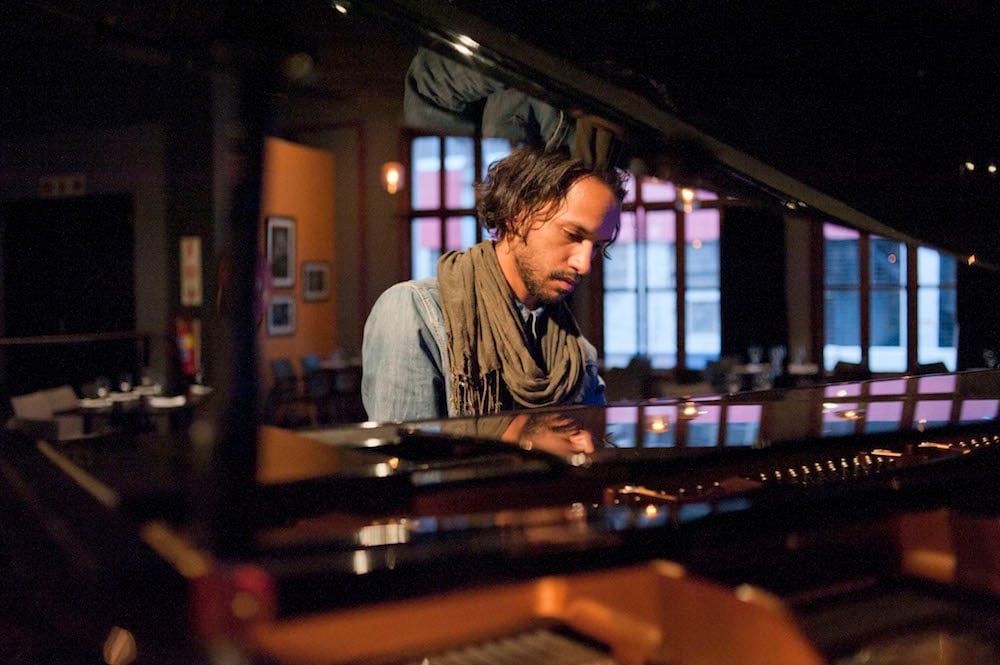Award-winning Kyle Shepherd is not resting on his laurels.
There’s something fascinating about the turning point in a musician’s life. For many, it sneaks up in the midst of political unrest as it did for the jazz group the Blue Notes, in the 1960s, who, after leaving South Africa, explored their social and musical freedom. For others, like the lionised saxophonist John Coltrane, a heady concoction of spirituality and drugs were the tipping point for future sounds.
But the catalyst for pianist-composer Kyle Shepherd’s juncture was the admiration that comes with being famous.“The turning point came out of receiving too much praise, if it makes sense,” he says, as if to gauge how outlandish that might sound to someone who cannot empathise with stardom.
This is a metamorphic time for the musician. Last year, he won the Standard Bank Young Artist of the Year award for jazz. Recently, he returned from playing at Carnegie Hall in New York, became a father and began rethinking his sound. Shepherd, who dropped out of the University of Cape Town’s jazz school, has also been awarded the Newton Memorial Music Scholarship to take his master’s at Stellenbosch University.
“I have been writing like a madman. I have written so many compositions these last few months than I know what to do with. And me and my trio are moving into a space where I feel modern South African jazz might come from.”
Cape Town-based Shepherd catches up with me by Skype from Switzerland, where he’s with fellow award-winning jazz artists drummer Kesivan Naidoo and bassist Shane Cooper, touring and recording an album with Swiss musicians.

Kyle Shepherd Trio. (Gregory Franz)
FREE DOWNLOAD
Family Love & Dream State from Shepherd’s latest album Dream State. Free download available until Monday June 1.
“I kind of got tired when playing in some obscure town somewhere in Japan and, after the concert, wonderful and kind people came up to me and, instead of saying they enjoyed my music, were like, ‘ah, this African vibe’.
“And this made me think that maybe I need to open up a bit in terms of the sounds … I want to be seen and heard as a serious composer, playing music, not African or South African music.”
Having built a musical career that flirts with the characteristics of Cape and township jazz, the “African vibe” or, more specifically, the South African vibe heard by those Japanese audiences is not far off. In fact, Shepherd admits to having “stepped on the hearthstones of South African revivalism”.
And in the traditions of jazz, in which musical revivalism is often celebrated, what could be so wrong with playing within a conventional realm, I wonder. Shepherd, who has been playing piano for 11 years, says that he isn’t trying to move away from local traditional sounds but rather is trying to build on them.
“I see the merit in studying the music of your home but then taking it forward into the future.
“I feel that, at a certain point, when you’re dedicated to the world of music and sound, and what that means, you can’t really be attached wholeheartedly to one culture or one sound.” He says the late legendary jazz saxophonist Zim Ngqawana, who took Shepherd under his wing, said something similar.
Since breaking into the music scene with his debut album fineART at the age of 20, Shepherd’s visceral compositions have given an unmistakably evil twist to his classical music and jazz training. At times, the force of his keyboard playing has led to comparisons with Abdullah Ibrahim, another star musician who helped to train Shepherd.
Despite the implied compliment, he says: “I don’t want to be the next Abdullah Ibrahim. I mean, I love his music and I have studied it and I respect him. I don’t want to be a cliche.”

(Photo: Delwyn Verasamy)
Despite talking about a restlessness he felt after recording his first three albums, he says he “could have easily rested on the success I had with my older work” but “I wanted to fucken’ challenge myself”.
“I felt I wasn’t working hard enough to find in the music deeper ways to play and compose it. I was coasting along for two, three years.”
But listening to the highly acclaimed 2014 recording of Dream State, which features his trio with Cooper and Jonno Sweetman on drums, his signature arrangements reveal both an adult pianist and stirring drama and unwavering bravado that intuitively reflect on the past – such as the songs Doekom, with its hysterical, staccato allure, and the meditative and free-sounding The Sun at Dusk.
But his contributions on albums such as drummer Claude Cozens’s underrated gem Jubilee Jam, on which he plays the electronic keyboard and synths, exposes a newness in Shepherd’s sound. This also comes through when he widens his sonic landscape as sideman on Stories, the latest project for bassist Carlo Mombelli.
The 27-year-old admits that he has not yet achieved the sound he is trying for. “We’re mostly failing,” he says of exploring techniques with his trio.
“The will to try it out is there, not the manifestation. But that’s the artistic process and it’s evolving overnight. And, as a band leader, I’m very open to that evolution.”
Catch the Kyle Shepherd Trio live at The Orbit on Friday May 29 and Saturday May 30 at 8.30pm
*Note: The original article stated that Shepherd has played piano for 22 years. It has been updated to 11.